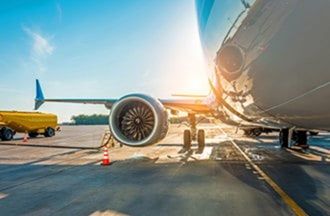IATA: SAF registry to be operated by the Civil Aviation Decarbonization Organization

SOURCE: International Air Transport Association
March 28, 2025
BY International Air Transport Association
The International Air Transport Association (IATA) has established the Civil Aviation Decarbonization Organization (CADO) to manage the IATA-developed Sustainable Aviation Fuel (SAF) Registry when it is released.
“CADO will turbo-charge the imminent launch of the IATA-developed SAF Registry. Its mandate is to manage the SAF Registry as a separate entity from IATA with an open and global approach that supports the scrutiny needed to build trust among all stakeholders. In fact, the door is open for any stakeholder in the SAF value chain, including governments, to join CADO. This inclusive approach should also be a force for the harmonization of the principles on which all SAF registries operate,” said Marie Owens Thomsen, IATA’s Senior Vice President Sustainability and Chief Economist.
“The SAF Registry is a critical piece of market infrastructure that is indispensable in building a global, transparent, and liquid global market for SAF. The industry’s commitment to build the Registry and establish CADO to manage it should inspire governments, fossil fuel producers, and investors to engage in the SAF market with commensurate vigor. Ramping-up SAF production is the common goal and the structure we are putting in place with CADO is an important step in moving decarbonization forward,” said Willie Walsh, IATA’s Director General.
Advertisement
About CADO
CADO is incorporated as a not-for-profit organization in Canada with its headquarters in Montreal. IATA is the founding member of CADO and its role in CADO will include ongoing technical support and operations. CADO membership is open to:
- Organizations that operate in or contribute directly to the SAF value chain, or that represent any association or group of participants in the SAF value chain
- States or quasi-state organizations with a direct interest in the operations and benefit of the SAF Registry
- Related interest groups indirectly benefitting from SAF deployed in the aviation system
About the SAF Registry
IATA is developing the soon-to-be-launched SAF Registry as a global system to record SAF transactions in a standardized and transparent way. It ensures that the environmental benefits of SAF can be tracked as they move across the SAF value chain and enable the claiming of these against regulatory obligations and voluntary schemes by airlines and corporate customers.
Advertisement
The SAF Registry helps solve the challenge of limited SAF supply —which is acutely scarce and available in only a few locations globally —by connecting airlines with SAF producers and suppliers, regardless of their geographical location. In addition, it gives access to airlines’ corporate customers to in-sector emissions reductions and capitalizes on firms’ capacity to co-finance the cost of decarbonization.
Participation in the SAF Registry will be free until April 2027, after which it will be operated on a cost recovery basis.
Related Stories
Avfuel Corp., the leading independent supplier of aviation fuel and services, is expanding its sustainable aviation fuel (SAF) footprint with the addition of a new, strategic supply point in Denver, Colorado—the first of its kind in the region.
CVR Energy Inc. on July 30 reported its renewables segment achieved increased throughput during Q2 despite unplanned downtime but reported a net loss of $11 million. The company expects to retroactively claim the 45Z credit for volumes produced.
Total U.S. operable biofuels production capacity expanded in May, with gains for renewable diesel and a small decrease for ethanol, according to data released by the U.S. Energy Information Administration. Feedstock consumption was up.
SAF-producer XCF Global Inc. on July 28 announced it has signed an exclusive, non-binding indication of intent (IOI) with a renewable fuels infrastructure and feedstock solutions company based in the western U.S.
The European Commission on July 28 approved a €36 million ($41.07 million) Danish state aid scheme designed to encourage airlines operating in Denmark to use sustainable aviation fuel (SAF) on domestic routes.
Upcoming Events










